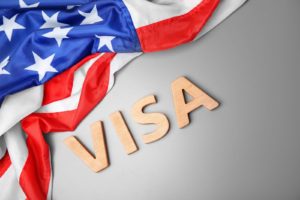 In order to be issued a U.S. visa, you must apply directly through either the U.S. Embassy in Hanoi or the U.S. Consulate in Ho Chi Minh City. All applicants are required to fill out a DS 160 online application and pay the visa processing fee. The fee depends on the type of visa you are applying for which ranges from US$160 (VND3,840,000) to US$265 (VND4,920,000). The fee can be paid over the counter at any Vietnam Post branch. All visa processing fees are non-refundable once paid.
In order to be issued a U.S. visa, you must apply directly through either the U.S. Embassy in Hanoi or the U.S. Consulate in Ho Chi Minh City. All applicants are required to fill out a DS 160 online application and pay the visa processing fee. The fee depends on the type of visa you are applying for which ranges from US$160 (VND3,840,000) to US$265 (VND4,920,000). The fee can be paid over the counter at any Vietnam Post branch. All visa processing fees are non-refundable once paid.
After you have paid your visa processing fee and completed the DS 160 online application, you may schedule an appointment. Scheduling an appointment can be done either over the phone or online.
On the day of your scheduled interview, it is recommended that you arrive between 20-30 minutes early. In addition to the DS 160 online application confirmation page and your passport, you are welcome to bring supplemental documentation such as tax returns, bank statements, proof of home ownership, employment certificates, and any additional information that could be used to demonstrate that you fully intend on returning to Vietnam following your temporary trip to the United States. While supplemental documentation is not required, the interviewing consular officer may request to see the documentation.
Always remember to smile at the consular officer and answer the questions truthfully. If approved, your visa will be issued and sent via courier to your designated address.
For more information, contact us at:








